
Find Help
More Items From Ergsy search
-
Is malaria still a concern for blood transfusion safety?
Relevance: 100%
-
What is a blood transfusion?
Relevance: 90%
-
Blood Product Transfusions
Relevance: 90%
-

Is HTLV a risk in blood transfusions?
Relevance: 87%
-

Are there risks associated with blood transfusions?
Relevance: 86%
-

Is Hepatitis B a risk in blood transfusions?
Relevance: 86%
-
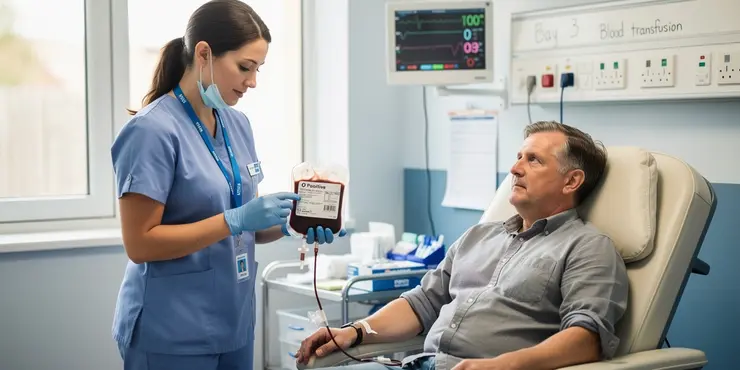
Blood Transfusion
Relevance: 86%
-
Is there an age limit for receiving blood transfusions?
Relevance: 84%
-

Is Chagas disease a concern with blood transfusions?
Relevance: 83%
-

What diseases can be spread by blood transfusions?
Relevance: 82%
-
Is Zika virus screened for in blood transfusions?
Relevance: 81%
-
Can someone have a reaction to a mismatched blood transfusion?
Relevance: 81%
-
How long does a blood transfusion take?
Relevance: 80%
-
Can bacterial infections be transmitted through blood transfusion?
Relevance: 79%
-
Are new emerging pathogens a risk for blood safety?
Relevance: 79%
-

Are there any parasites that can be transmitted through blood transfusions?
Relevance: 79%
-

Can syphilis be transmitted via blood transfusion?
Relevance: 78%
-
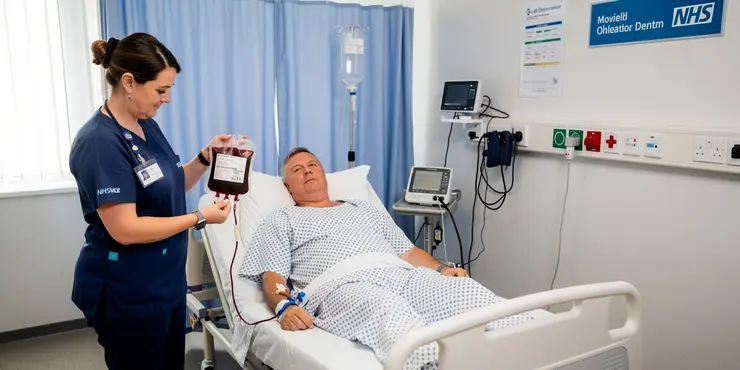
What types of blood products can be transfused?
Relevance: 78%
-
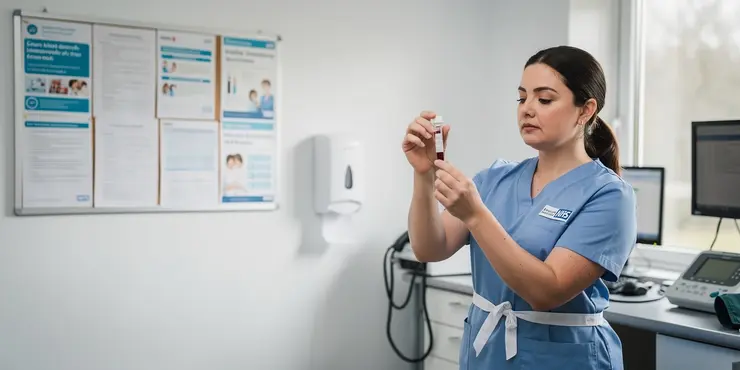
What is the most common disease transmitted by blood transfusion?
Relevance: 78%
-
Can HIV be transmitted through blood transfusions?
Relevance: 78%
-

Can COVID-19 be transmitted through blood transfusions?
Relevance: 77%
-
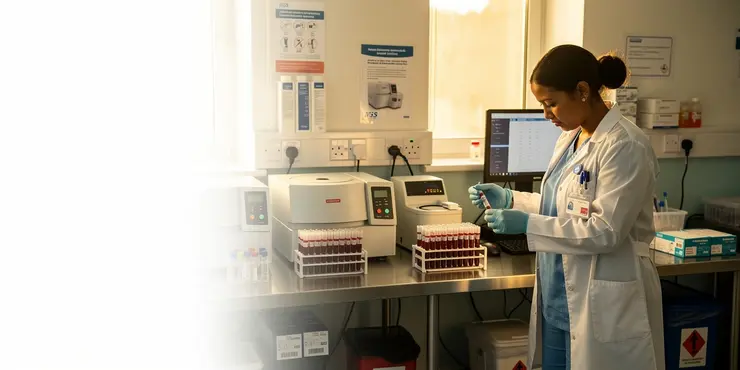
How do healthcare providers match blood for transfusions?
Relevance: 77%
-
What are some common reasons blood transfusions are needed?
Relevance: 76%
-
Why might someone need a blood transfusion?
Relevance: 75%
-
Can Dengue fever be transmitted through blood transfusions?
Relevance: 74%
-
Can you get any prion diseases from blood transfusion?
Relevance: 74%
-

What measures are taken to prevent disease transmission in blood transfusions?
Relevance: 74%
-

How do doctors determine how much blood is needed for a transfusion?
Relevance: 74%
-
Can people of any blood type receive a transfusion of any blood type?
Relevance: 73%
-
Can certain medical conditions prevent receiving blood transfusions?
Relevance: 69%
-
Is blood used for transfusions safe?
Relevance: 64%
-
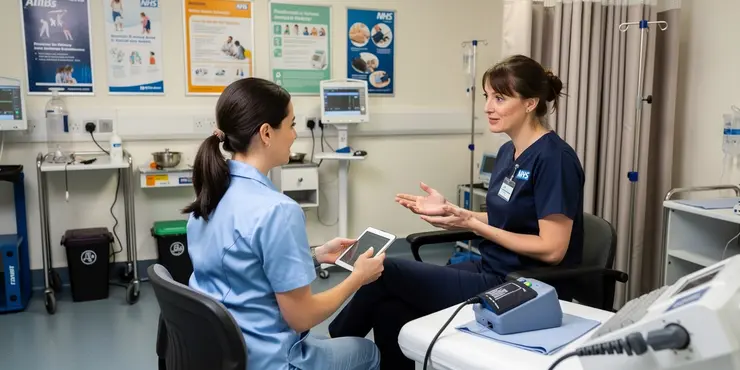
Are there global differences in screening for blood transfusions?
Relevance: 60%
-

Can cytomegalovirus (CMV) be spread through transfusions?
Relevance: 60%
-

What is plasma, and why might it be transfused?
Relevance: 58%
-

How is blood screened to prevent disease transmission?
Relevance: 57%
-
What kind of follow-up care is needed after a blood transfusion?
Relevance: 53%
-
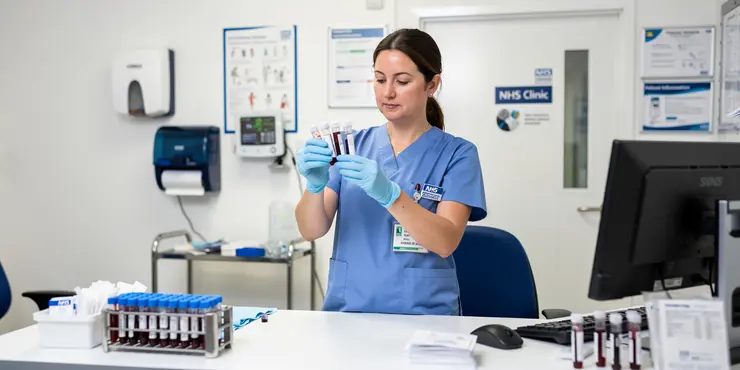
What other viruses are tested for in blood donations?
Relevance: 52%
-
What should a patient expect after a blood transfusion?
Relevance: 51%
-

Can you donate blood specifically for a friend or family member?
Relevance: 42%
-

Health and safety responsibilities
Relevance: 41%
Introduction
Blood transfusions are a critical part of modern healthcare, saving countless lives each year. In the UK, as in many other parts of the world, the safety of blood used for transfusions is a top priority. Rigorous protocols and stringent regulations ensure that the blood supply remains as safe as possible for patients.
Blood Donation and Screening
Blood donation in the UK is overseen by NHS Blood and Transplant (NHSBT), an organization that ensures the blood supply is safe and sufficient. All donated blood undergoes extensive testing to make sure it is safe for transfusion. Donors are carefully selected through a thorough screening process, which includes medical history checks and assessments of risk factors that could potentially affect the safety of their blood.
Every donation is tested for several infectious diseases including HIV, hepatitis B and C, and syphilis. These tests are highly sensitive and are designed to detect even the smallest traces of infection, significantly reducing the risk of transfusion-transmitted diseases.
Blood Typing and Compatibility
Ensuring compatibility between donor blood and the recipient is another critical factor in the safety of blood transfusions. Blood is meticulously typed and cross-matched with the patient's blood before transfusion. This process helps to prevent adverse reactions that could occur if the blood types are not compatible, such as hemolytic reactions, which can be serious or even life-threatening.
Regulatory Oversight and Standards
The safety of blood used for transfusions is also maintained through strict regulatory oversight. The Medicines and Healthcare products Regulatory Agency (MHRA) regulates the collection, testing, processing, storage, and distribution of blood in the UK. This agency ensures compliance with both UK and European Union standards, which are among the highest in the world.
Furthermore, the UK is continuously updating its safety protocols based on the latest scientific evidence and technological advancements. This proactive approach helps to maintain the highest standards of safety and efficacy in blood transfusions.
Conclusion
In conclusion, the blood used for transfusions in the UK is considered safe due to comprehensive screening processes, strict regulatory frameworks, and adherence to high standards of testing and monitoring. While no system can be completely free of risk, the rigorous safeguards in place ensure that these risks are minimized. The continuous advancement in medical technology and practices further enhances the safety of blood transfusions, providing reassurance to patients and healthcare providers alike.
Introduction
Blood transfusions are very important in healthcare today. They help save many lives every year. In the UK, making sure blood is safe for transfusions is a top priority. There are strict rules to make sure the blood is as safe as possible for people who need it.
Blood Donation and Screening
In the UK, blood donation is managed by NHS Blood and Transplant (NHSBT). This group makes sure there is enough safe blood. Every time someone donates blood, it is thoroughly tested to make sure it is safe to use. People who want to donate blood are checked carefully. This includes asking about their health history to ensure their blood is safe.
Every donation is tested for diseases like HIV, hepatitis B and C, and syphilis. These tests look for tiny signs of these diseases to keep blood safe.
Blood Typing and Compatibility
Before a blood transfusion, it is important to make sure the blood from the donor matches the blood of the person getting it. This is to avoid problems that can happen if the blood types do not match. Matching blood types can prevent severe reactions.
Regulatory Oversight and Standards
There are very strict rules about how blood is collected and used in the UK. The Medicines and Healthcare products Regulatory Agency (MHRA) makes sure these rules are followed. They make sure the blood collection, testing, and storage meet very high standards in the UK and Europe.
The UK is always updating its rules to use the latest science and technology. This helps keep blood transfusions safe and effective.
Conclusion
In summary, blood used for transfusions in the UK is very safe. This is because of careful testing, strict rules, and high standards. Although no system is without risk, these rules help keep risks low. New medical technology also helps make blood transfusions even safer, giving confidence to patients and healthcare workers.
Frequently Asked Questions
Useful Links
This website offers general information and is not a substitute for professional advice.
Always seek guidance from qualified professionals.
If you have any medical concerns or need urgent help, contact a healthcare professional or emergency services immediately.
Some of this content was generated with AI assistance. We’ve done our best to keep it accurate, helpful, and human-friendly.
- Ergsy carfully checks the information in the videos we provide here.
- Videos shown by Youtube after a video has completed, have NOT been reviewed by ERGSY.
- To view, click the arrow in centre of video.
- Most of the videos you find here will have subtitles and/or closed captions available.
- You may need to turn these on, and choose your preferred language.
- Go to the video you'd like to watch.
- If closed captions (CC) are available, settings will be visible on the bottom right of the video player.
- To turn on Captions, click settings .
- To turn off Captions, click settings again.
More Items From Ergsy search
-
Is malaria still a concern for blood transfusion safety?
Relevance: 100%
-
What is a blood transfusion?
Relevance: 90%
-
Blood Product Transfusions
Relevance: 90%
-

Is HTLV a risk in blood transfusions?
Relevance: 87%
-

Are there risks associated with blood transfusions?
Relevance: 86%
-

Is Hepatitis B a risk in blood transfusions?
Relevance: 86%
-

Blood Transfusion
Relevance: 86%
-
Is there an age limit for receiving blood transfusions?
Relevance: 84%
-

Is Chagas disease a concern with blood transfusions?
Relevance: 83%
-

What diseases can be spread by blood transfusions?
Relevance: 82%
-
Is Zika virus screened for in blood transfusions?
Relevance: 81%
-
Can someone have a reaction to a mismatched blood transfusion?
Relevance: 81%
-
How long does a blood transfusion take?
Relevance: 80%
-
Can bacterial infections be transmitted through blood transfusion?
Relevance: 79%
-
Are new emerging pathogens a risk for blood safety?
Relevance: 79%
-

Are there any parasites that can be transmitted through blood transfusions?
Relevance: 79%
-

Can syphilis be transmitted via blood transfusion?
Relevance: 78%
-

What types of blood products can be transfused?
Relevance: 78%
-

What is the most common disease transmitted by blood transfusion?
Relevance: 78%
-
Can HIV be transmitted through blood transfusions?
Relevance: 78%
-

Can COVID-19 be transmitted through blood transfusions?
Relevance: 77%
-

How do healthcare providers match blood for transfusions?
Relevance: 77%
-
What are some common reasons blood transfusions are needed?
Relevance: 76%
-
Why might someone need a blood transfusion?
Relevance: 75%
-
Can Dengue fever be transmitted through blood transfusions?
Relevance: 74%
-
Can you get any prion diseases from blood transfusion?
Relevance: 74%
-

What measures are taken to prevent disease transmission in blood transfusions?
Relevance: 74%
-

How do doctors determine how much blood is needed for a transfusion?
Relevance: 74%
-
Can people of any blood type receive a transfusion of any blood type?
Relevance: 73%
-
Can certain medical conditions prevent receiving blood transfusions?
Relevance: 69%
-
Is blood used for transfusions safe?
Relevance: 64%
-

Are there global differences in screening for blood transfusions?
Relevance: 60%
-

Can cytomegalovirus (CMV) be spread through transfusions?
Relevance: 60%
-

What is plasma, and why might it be transfused?
Relevance: 58%
-

How is blood screened to prevent disease transmission?
Relevance: 57%
-
What kind of follow-up care is needed after a blood transfusion?
Relevance: 53%
-

What other viruses are tested for in blood donations?
Relevance: 52%
-
What should a patient expect after a blood transfusion?
Relevance: 51%
-

Can you donate blood specifically for a friend or family member?
Relevance: 42%
-

Health and safety responsibilities
Relevance: 41%


